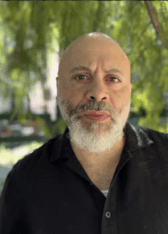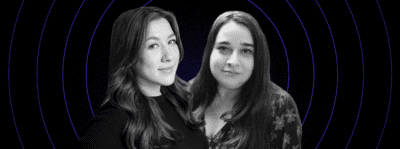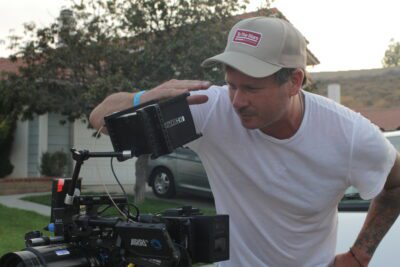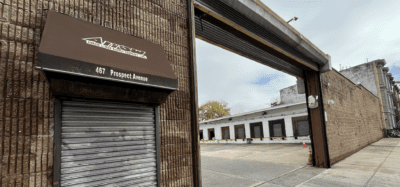Nowhere Man: Writer Robert Lopez discusses his new patchwork memoir
“I sometimes think I'm a fraudulent Latino,” Lopez says of his experience writing “Dispatches From Puerto Nowhere"
Robert Lopez’s grandmother told him to learn Spanish in school so he could rat out criminals on the subway.
“There was no other reason to learn or speak Spanish,” he writes at the start of his new memoir “Dispatches From Puerto Nowhere: An American Story of Assimilation and Erasure,” which asks what it means to be whitewashed in America — to experience what the novelist poet and essayist calls a “permanent amnesia.”
For Lopez, “nothing was passed down, not language, not the food or music, or the family history. Everything was erased.”
Writing in almost impressionistic fragments, Lopez works in bursts of thought across a steady plain of self-investigation. He uses historical research and imagined scenes to dig into the past while showcasing his inability to access it.
Oh, and there’s also tennis.
A professor of creative writing at Stony Brook University, longtime Brooklyn resident, and author of darkly hilarious novels like “Kamby Bolongo Mean River,” Lopez explores the nagging discomfort of not being able to speak the Spanish of his progenitors, or having any understanding of their immigration from Puerto Rico to Brooklyn in the 1920s — or was it the ‘30s?
The book’s official launch took place at the Greenlight Bookstore in Fort Greene on Wednesday March 15, where Lopez read from his memoir and spoke with writer and critic Touré.
In this interview, Brooklyn Magazine speaks with Lopez about moving from fiction to memoir, the realities of American assimilation, Brooklyn’s diverse tennis community and more.
This interview has been edited for concision and clarity.


Lopez
In “Dispatches” you describe cultural erasure as “a certain discomfort that you can’t quite articulate.” How did this feeling manifest into words?
When I wrote fiction it was a million miles away. The discomfort of erasure was never a possibility I could look at in prose. I first wrote about it in a meditation on the word “spic” –– where it came from, what it means etc.
“Okay,” I said. “I’m writing about this. Now what else can I do in this arena?” And that’s where the idea of examining this lack of connection to my family’s history really came about. It eventually became clear that it was a book, which took its own form over the course of many drafts and many ways of looking at it.
Do you think this discomfort snuck into your previous novels and stories at all?
Oh sure. So many of my characters have felt disconnected from the people around them, whether it’s family or loved ones, romantic interests, friends, coworkers. They’ve all felt alienated from everybody around them. But like me, they never examined where it came from. Looking back now with some perspective I can see this is what I’ve been writing about since the time I started.
Were there any other organic discoveries you made while writing “Dispatches?”
I was trying to grasp anything I may have experienced with my grandfather. He died when I was 16. But I didn’t know who he was or where he came from, his own history or politics, or anything meaty. So I cross-referenced history with my mom and sister. I’d never done that type of research before and I learned a lot.
Whether it’s longshoremen in Red Hook or racist housing policies in Starrett City, there’s so much incredible external research in here as well.
Every time I looked into Puerto Rican history and there were some news stories about cops killing Puerto Ricans in the ‘50s in New York City –– all of that served as ammunition to talk about these issues in a way that matters and ask, “Why is this part of my story?”
What was it like for you writing about imagined moments from your father and grandfather’s lives, especially in present tense?
I really appreciate that question because it felt good in a very weird way. It felt like I could make my grandfather come alive and have him feel more like a tangible real-life being in the world as opposed to this elusive ghostlike figure. It put a little meat on his bones and blood in his veins, and, you know, it is all fictional. Everything I write in the present tense for Sixto is completely invented.
I know he played guitar but I have no idea if he ever played with other people, so the idea of “Oh, why don’t you put him in Tito Puente’s band and have him be a prodigy?” I thought all of it was super fun to do. Inventing these possible histories for him. Maybe he wanted to be a Roberto Clemente, maybe this, maybe that –– it felt comforting and familiar to work in a fiction motif, which offered a dynamic texture to the reading experience.
Early in the book you quote Donald Barthelme –– “Fragments are the only forms I trust.” Do you believe this? Or do fragments just relate to the book’s themes of disconnection and erasure?
I experience the world in fragments and the nature of causality is not something I try to pay any credence to on the page. Everything seems to happen in some sort of nonlinear, discontinuous fashion. The overall effect is an impression rather than “This happened, which led to this, then that.”
In terms of setting, you told Kirkus Reviews that “space is never important to me when it comes to the language I play around with.” I’m curious how this perspective influenced “Dispatches,” a book that focuses on place so much, whether real or imagined, Brooklyn or “Puerto Nowhere.”
For most of my fiction, I’ve left off describing where things take place, be it interior or exterior. So many writers have done it throughout the history of literature to the point where I’m like “OK, I can point the camera somewhere else,” looking internally rather than externally.
Which isn’t to say place isn’t important or that setting isn’t a key craft element, but I hope the absence of doing it in fiction says something. So with nonfiction, Brooklyn is part of the narrative in a way that I’ve never done in fiction. I’ve never utilized Brooklyn as a hard place in the world.
I had to reread the “Dispatches from The Caribbean” sections a few times, mostly because I was interested in how you described Puerto Rico in such positive and negative ways, side-by-side.
I thought the idea of the narrator of this book idealizing Puerto Rico was interesting, that the people there are beautiful and life is this idyllic experience with no problems at all. So much of what I’ve written doesn’t idealize anything. To actually do that in this book was a nice tonal shift, offering the reader (and myself) a little relief. And to imagine a better Puerto Rico. Particularly because I’ve never been there and have no idea what actual reality is like on the island.
Does Brooklyn look different to you after researching and imagining your family members here?
Oh sure. Brooklyn has changed wildly over the years. Even in the last 15. The tallest structure in Brooklyn used to be that clocktower near the Atlantic Center in Fort Greene. And that’s not tall at all. But now there are 10 or 12 buildings downtown that change the way I think of Brooklyn and how so many longtime residents and denizens of Brooklyn look at it and feel about it.
I have memories of Brooklyn from the late ‘70s and early ‘80s, and I have memories of living here full-time for the last 17 years. Brooklyn plays a big part in this book and I’m glad of it.
I’m curious about your tennis community here, how diverse it is and how the sport connects to the themes of erasure. When did you decide to weave it into “Dispatches?”
I wanted some relief from the familial stuff. By juxtaposing the lack of connection to my family’s history and that culture I could examine the real connection I have with the tennis community and the sport.
I can’t remember exactly when I introduced tennis into this project, but once I did that duality was quite evident: Here’s a place where there is connection and here’s a place where there’s no connection. Here’s a place where there’s a mixture of fun, joy, and frustration, and on the other side is a sense of anger and frustration I can’t even articulate. Putting that together became a lynch pin in the book for me.
And my tennis community from Fort Greene, they’re people from all over the world and the diversity is extraordinary. Like one of my tennis partners, Cary, who is from China but went to school in Puerto Rico. He speaks Spanish and I don’t. These stories illustrate both the absurdity of what assimilation and erasure is, but also the beauty of the world and how people are moving around and cultures clash and meet each other in interesting ways.
I read that you learned tennis later in life. I’m intrigued by your self-identification as an “imposter” in the book. What have you learned from imposterdom?
In the book I write about people looking at me as a Latino writer. On the page there isn’t talk about what you might find in a Junot Diaz story, you know? There’s none of that Spanglish, no barrio, nothing like that. When people think of me as a Latino writer when I don’t think of myself as a Latino writer, that’s always been a surprise to me.
I sometimes think I’m a fraudulent Latino. But it’s the reality of my life and upbringing. There’s nothing I can do about it.
You also use the term “permanent amnesia” to describe the sensation of cultural erasure. What advice would you give people who feel disconnected from their family’s cultural, geographic and ethnic roots?
If that disconnect bothers you, you should do what you can to alleviate it. If you have family members who are living and can communicate the family story, do it now while they’re still around, because as time moves you will lose that opportunity.
What did you uncover about the reality of American assimilation?
To me, if you’re moving abroad, you should understand something about the history of the place, the culture, the language, the mores. Otherwise why live there? Why go there if you’re not going to assimilate; it feels almost disrespectful to me to not be a part of where you are. But that process doesn’t need to include erasure.
You need to celebrate who you are and who your people are. You need to pass along the language and the history and the cultural identifiers that make you part of something greater than yourself. Where you come from is a vital part of who you are and who you’re going.
You might also like 


























